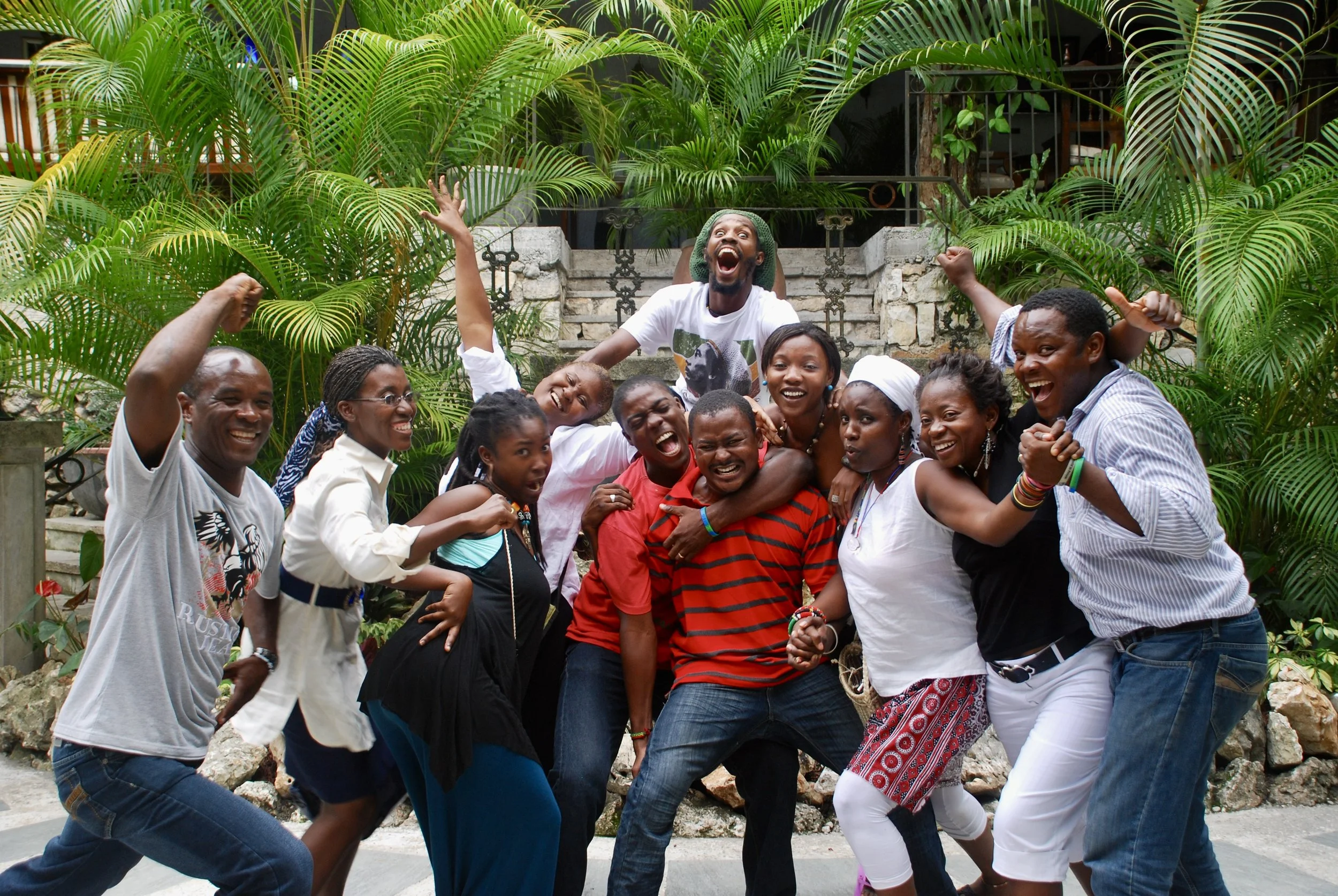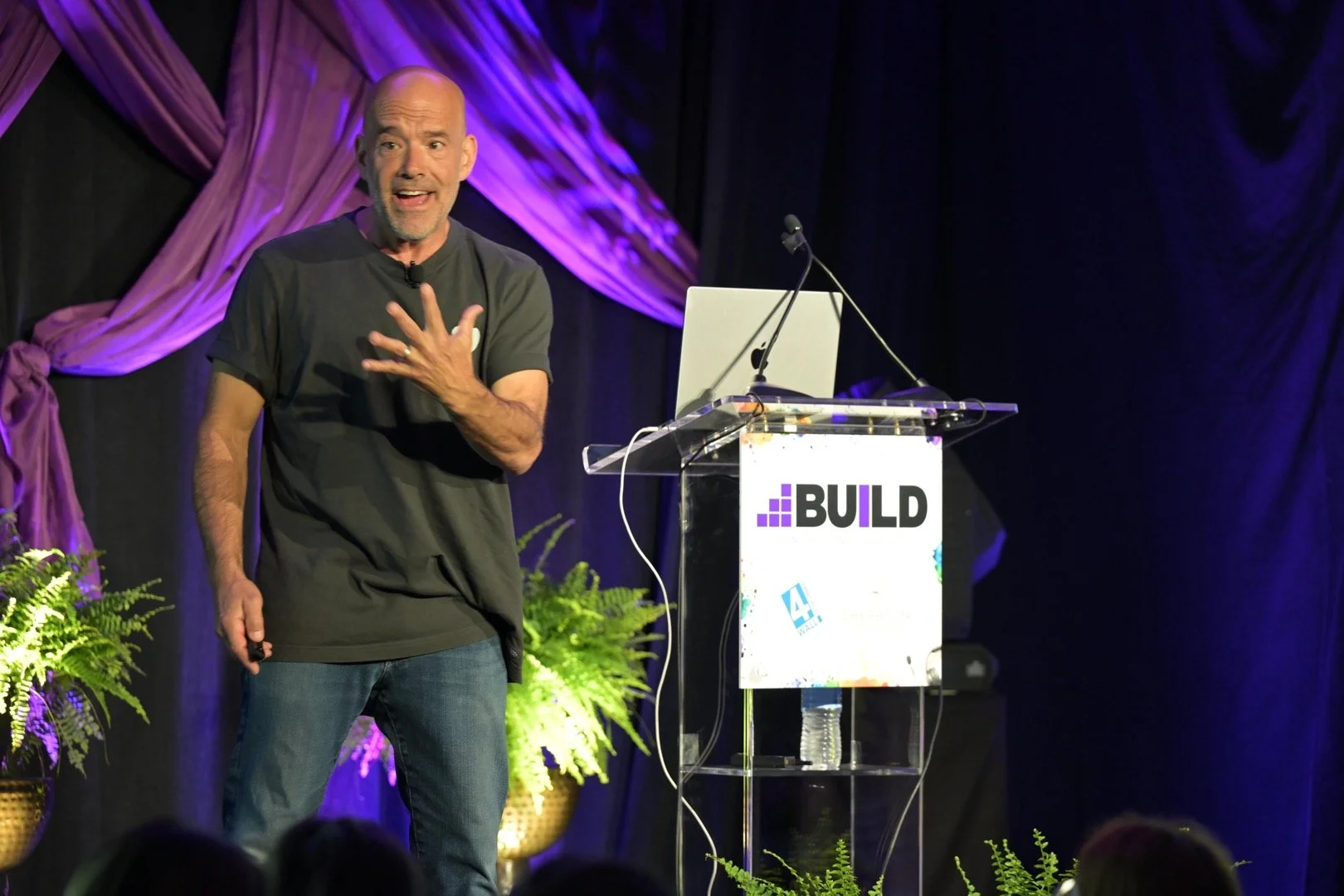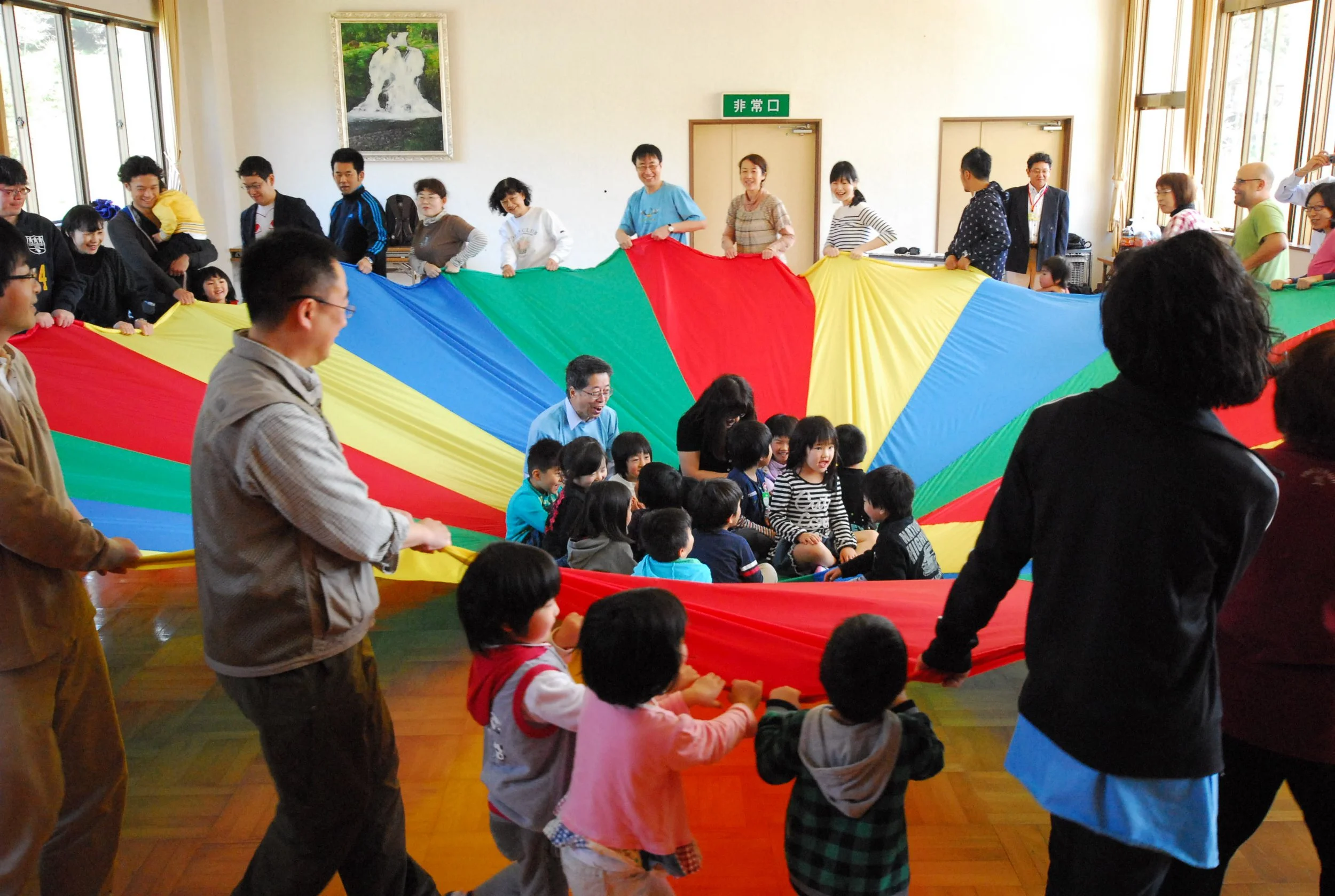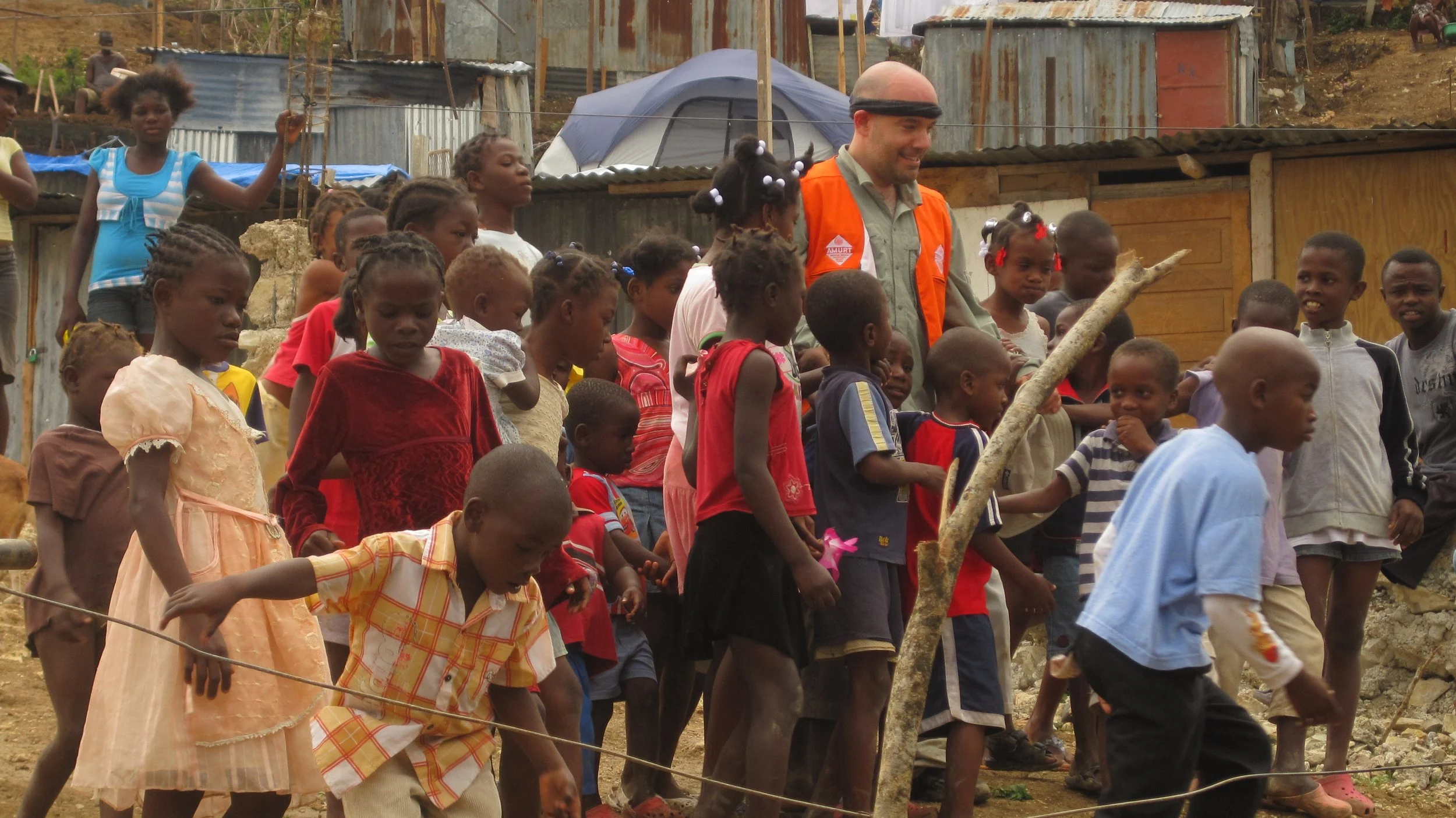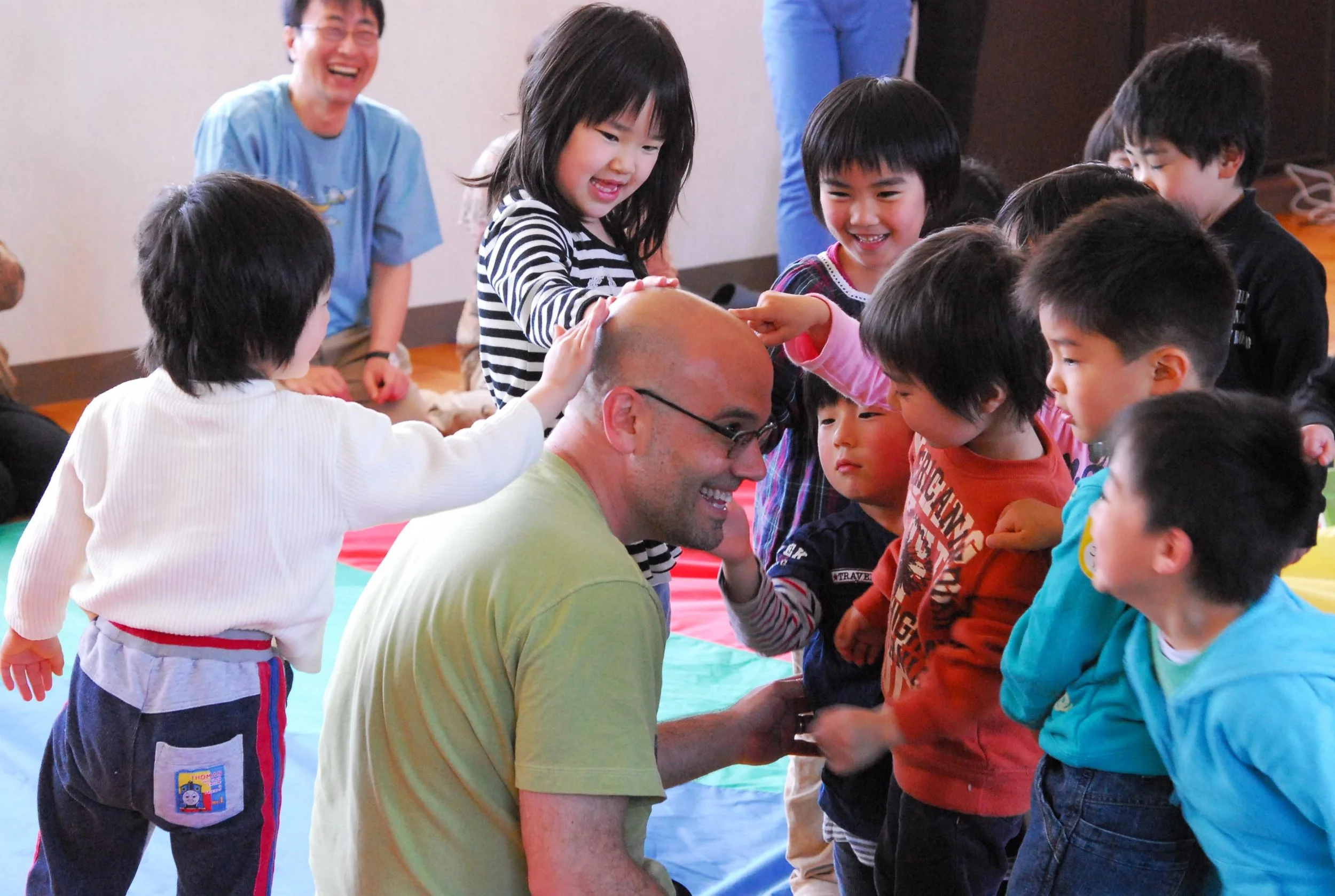How The Life Is Good Playmaker Project Is Healing Trauma Through The Power Of Play
The Life is Good Playmaker Project, a nonprofit that has trained nearly 30,000 early childhood educators, social workers, and caregivers in the simple yet profound art of using play to heal trauma
When Steve Gross was a teenager, he discovered something unusual about himself.
He didn’t have the flashiest talents or the sharpest academic skills—but he had a gift for connecting with kids. Whether on a basketball court or at summer camp, he could make them feel safe, seen, and valued.
That gift would one day become his life’s work.
Gross is the Chief Playmaker and Founder of The Life is Good Playmaker Project, a nonprofit that has trained nearly 30,000 early childhood educators, social workers, and caregivers in the simple yet profound art of using play to heal trauma. Together, these Playmakers reach more than 1.3 million children every year, many of them living with homelessness, poverty, or violence.
“This intentional play is medicine,” Gross says. “And it’s more effective than any other medicine for treating adversity and trauma.”
Redefining Rich and Famous
Gross’s philosophy was shaped early on by his father, a renowned calculus professor at MIT who shocked colleagues by leaving for a job at a community college. “He said he did it because he wanted to be rich and famous,” Gross recalls. “He just measured it differently. Rich wasn’t about money—it was about your return on humanity. Famous wasn’t about being admired by strangers, but being loved by the people whose lives you made a difference in.”
That lesson—true wealth is measured by impact—became the compass for Gross’s career.
Steve Gross, Founder | Life is a Good Playmaker Project
Discovering Play As Medicine
In the early 1990s, while volunteering in Boston, Gross began experimenting with play as a tool for healing. With a group of friends, he started Project Joy, borrowing a local gym and driving a van to pick up kids from homeless shelters and daycare centers. There, he created intentional play groups filled with freedom, exploration, and joy.
What seemed like simple games soon revealed astonishing results: withdrawn children began speaking, angry children started playing cooperatively, and smiles returned to faces that had carried too much sadness.
A trauma psychologist observing one of those sessions told him: “This is some of the most profound trauma therapy I’ve ever seen.”
That was the moment Gross realized he wasn’t just leading games—he was unlocking joy, agency, and connection, the exact antidotes to the despair, helplessness, and isolation that trauma leaves behind.
From Project Joy To Playmakers
Gross soon recognized that his biggest impact wouldn’t come from his own time in gyms, but by equipping those who spend every day with children: teachers, social workers, caregivers.
“To really make change, you got to empower the people on the front line who are dedicating their lives to building those relationships,” he explains.
That shift became The Playmaker Project. Today, Playmakers are trained to be trauma-informed, optimism-infused, and play literate. The results speak for themselves:
100% of Playmakers report stronger relationships with children.
99.2% report greater capacity to combat burnout (vs. 60% national average).
98.6% report improved skills to support emotional health (vs. 80% national average).
A Partnership With Life is Good
John Jacobs, Co-Founder of Life is Good | © 2019 Allison Sepanek Photography
Gross grew up with Bert and John Jacobs, who would go on to found Life is Good, the optimism-fueled apparel company. In the early days, the brothers printed t-shirts for his fundraisers and painted murals at his play gyms. Years later, the partnership became official: 10% of Life is Good’s net profits now fund The Playmaker Project, alongside marketing and operational support.
“We’re not sitting at the kids’ table,” Gross says. “People look at the work of Playmakers as some of the most important work the company’s doing.”
The alignment is also deeply personal. Life is Good recently swapped its iconic “Jake” logo for a dragon, inspired by the founders’ mother Joan. As John Jacobs explains:
“Our mom Joan is the true inspiration for Life is Good. While raising six kids in a chaotic little house under a lot of strain, Joan found ways to bring positive energy to the table. She laughed, sang, played games, and told fun bedtime stories—like one about a dragon who breathes love instead of fire, which has become a symbol of our brand today. Her courage, creativity and resilience showed us that optimism is most powerful in the hardest times.”
He adds: “Joan spoke the universal language of children: play. Through her fierce love and playful spirit, she helped us focus on what was right in the world and in ourselves, even when things were tough. She was our first Playmaker. We believe every child deserves a Playmaker in their life. And through the Life is Good Playmaker Project, we’re committed to doing everything we can to help make that happen.”
For Gross, that philosophy—and Joan’s legacy—perfectly mirrors the mission of Playmakers.
Reigniting Joy In Educators
Playmaker training is delivered through immersive retreats and Playmaker University, an online platform created during the pandemic that now boasts a Net Promoter Score of 91—world-class by any standard.
The focus isn’t just on classroom techniques. It’s about helping educators themselves rediscover joy. “If you want to help nurture joy in a child, you’ve got to be joyful. If you want kids to feel loved, you need an abundance of love pouring from you,” Gross says.
By recharging teachers emotionally, Playmaker ensures they have the resilience to pass that spark on to the children in their care.
Life is a Good Playmaker Project - Playtopia
Micro-Moments That Matter
The impact often shows up in the smallest of moments. Gross shared a story from a Playmaker about a boy named TJ, a two-year-old living in a shelter who struggled with frustration. When asked to clean up his snack plate, TJ bristled with anger. Instead of forcing compliance, his teacher sat down beside him, asked about his Magnetile castle, and offered to be the knight guarding it.
TJ smiled, cleaned up his plate, and happily returned to building.
The teacher later wrote: “Teaching kids to clean up after themselves is important, but it’s not as important as making sure they know how much you care about them. It is the little things—the micro-moments of love and joy—that make all the difference.”
For Gross, that’s what defines a Playmaker. Just like in sports, where a playmaker can turn the tide of a game, life’s Playmakers are the adults who enter at a critical moment in a child’s life and help change their trajectory.
Planting Seeds For The Future
With 30,000 trained Playmakers, Gross knows he’s only begun to scratch the surface of what’s possible. There are two million early childhood educators in the U.S. alone, and his vision is to reach them all. The Playmaker Project is looking to collaborate with brands and companies who can help scale and accelerate their mission.
“I’ve been at this for 35 years and I’m still scratching the surface,” he admits.
But he remains fueled by optimism—and by the belief that play is not a distraction from life’s challenges, but a pathway through them. Or as he puts it simply:
“Play is medicine.”
At Conspiracy of Love, we help changemakers tell their most powerful stories — stories that inspire action, build movements, and create lasting impact.
Find out more about our Values-Driven Storytelling and GPS to Purpose workshops, and how we can help you scale your impact.

